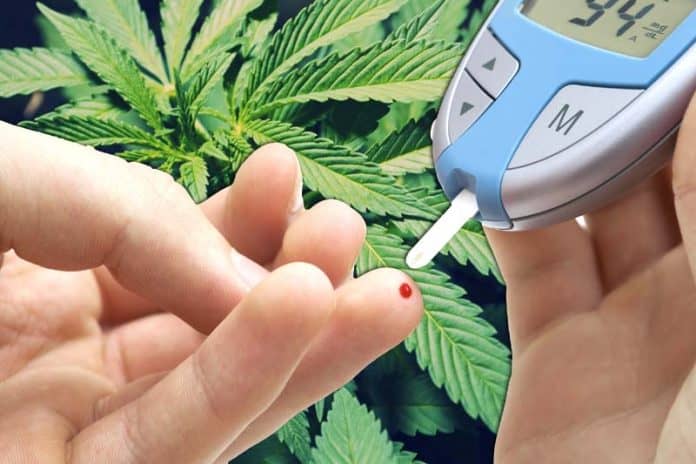
Type 2 diabetes is a health condition that affects how the body manages and uses sugar (glucose) as an energy source. Recent research from Iran suggests that a combination of CBD and THC may have potential benefits for regulating sugar levels in people with this condition.
Unlike type 1 diabetes, which is a genetic condition typically diagnosed in early life, type 2 diabetes is often linked to lifestyle factors and tends to develop gradually over time.
As of 2020, it was estimated that over 462 million people, equivalent to about 6.28% of the world’s population, were living with type 2 diabetes. Common approaches to managing this condition include adopting a healthier diet, engaging in regular exercise, losing weight, using insulin therapy, and monitoring blood sugar levels.
In a recent study conducted in Iran, researchers investigated the effects of a sublingual spray containing CBD and THC on individuals diagnosed with type 2 diabetes. The study findings, detailed in a press release from NORML, indicated positive changes in blood sugar and cholesterol levels among the participants.
The study involved 50 patients with type 2 diabetes who used the sublingual spray twice daily for eight weeks. The spray had a specific ratio of CBD to THC (ten-to-one). Compared to a placebo, the cannabinoid treatment resulted in statistically significant reductions in total cholesterol, triglycerides, LDL-C, fasting blood glucose levels, hemoglobin A1C, and insulin secretion at the end of the eight-week treatment period. Additionally, there were no significant differences in reported side effects between the two groups.
In conclusion, the researchers noted that sublingual administration of the CBD and THC spray, twice daily for eight weeks, effectively improved the patients’ lipid profile and glucose tolerance. Based on these findings, the combination of CBD and Δ9-THC therapy may present a promising new approach for managing lipid profiles and blood sugar levels in type 2 diabetic patients.
Previous clinical trials have also shown that the cannabinoid THCV can reduce fasting glucose levels in individuals with type 2 diabetes. Additionally, population-based studies have indicated that cannabis users tend to have lower body mass index (BMI) and other favorable indicators related to diabetes control. Observational studies have suggested that past cannabis use is associated with a reduced risk of developing diabetes in adults.